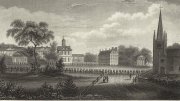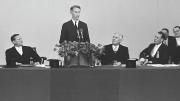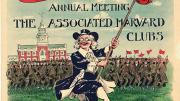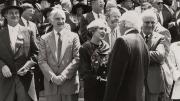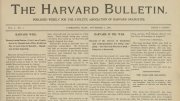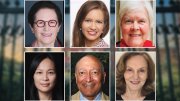On Commencement Day, August 26, 1840, a small group of Harvard College graduates established what is now known as the Harvard Alumni Association (HAA)—but only after drafting former U.S. president John Quincy Adams, A.B. 1787, LL.D. 1822, to lead the organization. Adams accepted, according to Harvard historian William Bentinck-Smith ’37 (“Aid and Light in Great Objects,” September-October, 1990, page 74), “though he had worries about his ‘inefficiency’ for the office.”
From the start, Adams said that the organization would “embrace all alumni without discrimination” and “have a happy influence in promoting mutual friendship and union among the graduates of the College.” Those are still the association’s top priorities—even as it counts more than 325,000 University alumni across the globe—and as it celebrates its 175th anniversary this academic year.
The HAA has benefited from the heritage embodied by earlier alumni and alumnae groups: the Associated Harvard Clubs (which merged with the alumni association in 1965 to form the Associated Harvard Alumni; the name reverted to the Harvard Alumni Association in 1982) and the Radcliffe College Alumnae Association (which held its last formal meeting in 2003). HAA staff members are now collecting archival images and stories that will help highlight the role alumni have always played in sustaining the University, for celebratory events. “Alumni have made Harvard what it is today, and will continue to shape Harvard into the future, in terms of governance, volunteerism, interviewing and recruiting potential students, in philanthropy, and any number of other ways,” says HAA executive director Philip W. Lovejoy. “Alumni care about Harvard more than anybody.”
